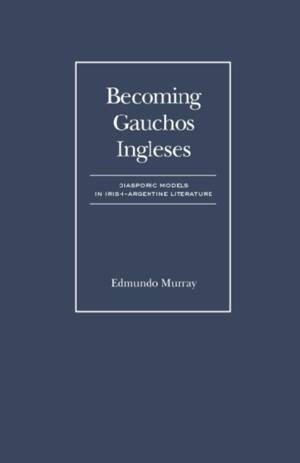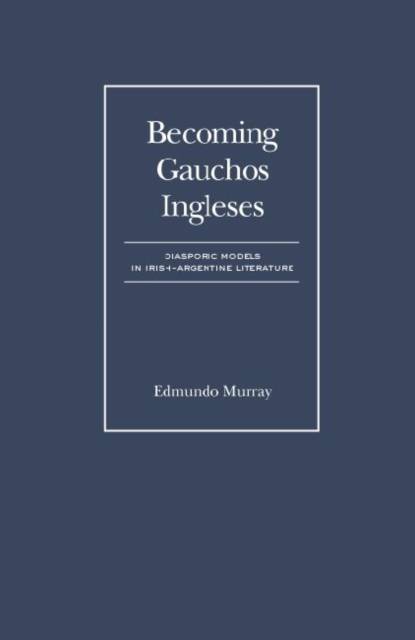
- Retrait gratuit dans votre magasin Club
- 7.000.000 titres dans notre catalogue
- Payer en toute sécurité
- Toujours un magasin près de chez vous
- Retrait gratuit dans votre magasin Club
- 7.000.0000 titres dans notre catalogue
- Payer en toute sécurité
- Toujours un magasin près de chez vous
120,45 €
+ 240 points
Description
"In presenting this literature, Murray demonstrates both its specificity as Irish-Argentine, and its character as representative of immigrant literatures in general. In doing so, he reminds us of the crucial issues at stake both in the phenomenon of migration and in the cultural constructs to which migration gives rise. These include the reality and idea of "diaspora," the experience of exile, the shifting notion of "home," the ambivalences of nostalgia, and the ambiguities of "cultural identity." With respect to the latter, there is irony in the fact that in Argentina the Irish were called Ingleses, when one considers the extent to which British policies formulated in England contributed to the conditions that forced so many Irish into emigration. But as Murray shows, Irish-Argentine literature does not register the same sense of oppression that we find in Irish literature of the same period--it is moved by different sentiments, and reflects a rather more complex set of myths and loyalties. If on one hand, the Irish "home" is the object of a nostalgic idealisation, on the other hand, Argentine-Irish writers are forward-looking, and embrace their new land with the frank and open-hearted spirit of Joyce's fictional emigrant. If some Irish-Argentines hold nationalist Irish sympathies, others express the desire to participate in a more generally Anglophone culture in Argentina, so that "English" comes to mean, even for the Irish in Argentina, English-speaking rather than "of England." In tracing the shifting meanings of words, the changing senses of identity, and the relocations of literary form, Murray's work is written under the sign of migration. As an interrogation of writing as migratory in several senses, this book has relevance for a good deal more than the particular historical phenomenon and the works of literature which are its primary concern." -From the foreword by Dr.David Spurr. This monograph fills a large gap in the literary and cultural history of the Irish diaspora--The Argentine Republic in the 19th and 20th centuries. Since 2000 there has been a growing research interest in the Irish in Latin America and the Caribbean . This work is the only modern research by a skilled scholar on the topic of the literature of the Irish Argentine. The work has ground breaking material on specific authors, their economic and their demographic milieu as well as assessments on Irish allied cultural activities (journalism, politics and music).
Spécifications
Parties prenantes
- Auteur(s) :
- Editeur:
Contenu
- Nombre de pages :
- 156
- Langue:
- Anglais
- Collection :
Caractéristiques
- EAN:
- 9781933146676
- Date de parution :
- 19-06-09
- Format:
- Livre relié
- Format numérique:
- Genaaid
- Dimensions :
- 152 mm x 229 mm

Les avis
Nous publions uniquement les avis qui respectent les conditions requises. Consultez nos conditions pour les avis.






